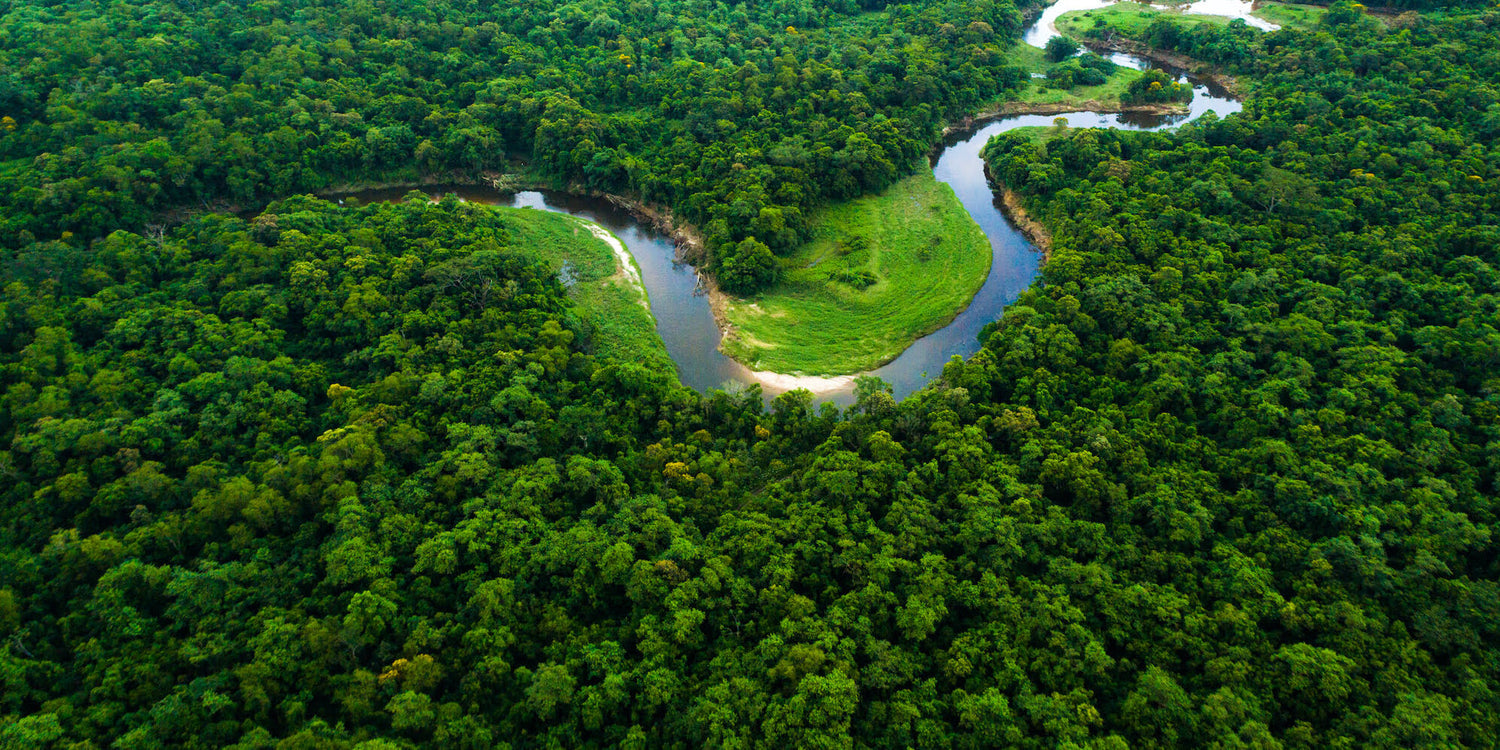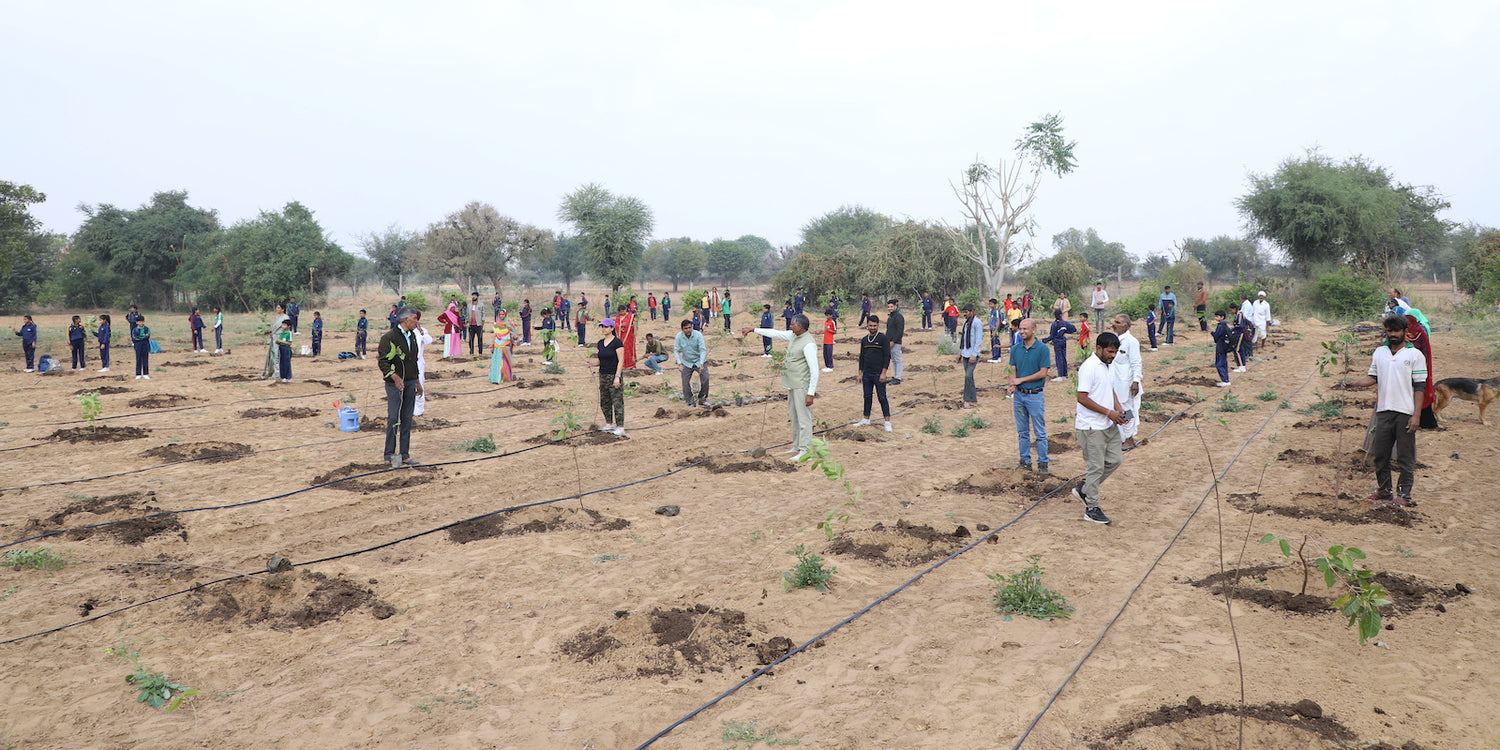Best Native Trees to grow near Vadodara: Cityscape Flourishment
Nestled along the banks of the Vishwamitri River, Vadodara, also known as Baroda, is a city of rich cultural heritage and vibrant urban life. As the c Read more
Connect with us
-
👥 Corporates
If you are looking for:
- 🌲 Tree Plantation Events
- 📊 CSR Projects
📧 corporate@growbilliontrees.com
📞 +91 9699723523
💬 +91 9325931304 WhatsApp (Only)
🕒 Mon - Sat | 10am - 7pm IST
-
🧩 Tree Plantation NGOs
If you are looking for:
- 💰 Financial Assistance
- 🤝 Operational Support
📧 support@growbilliontrees.com
📞 +91 9699723523
💬 +91 9325931304 WhatsApp (Only)
🕒 Mon - Sat | 10am - 7pm IST
-
🌼 Individuals
If you are looking for:
- 👥 Group Tree Plantation Drive
- 🌳 Bulk Tree Plantation
📞 +91 9699723523
💬 +91 9325931304 WhatsApp (Only)
🕒 Mon - Sat | 10am - 7pm IST
Plantation Gallery
Trending
Trees for Corporates
Best Native Trees to grow near Vadodara: Cityscape Flourishment
Nestled along the banks of the Vishwamitri River, Vadodara, also known as Baroda, is a city of rich cultural heritage and vibrant urban life. As the city embraces sustainable development, the cultivation of native trees emerges as a cornerstone of its environmental stewardship. Here, we explore a diverse selection of native trees ideally suited for cultivation near Vadodara, each contributing unique benefits to enhance the city's urban landscape.
Banyan (Ficus benghalensis): With its sprawling canopy and aerial roots, the banyan tree stands as a symbol of strength and resilience, providing shade and sanctuary in Vadodara's parks and neighborhoods.
Neem (Azadirachta indica): Revered for its medicinal properties, the neem tree offers relief from the urban bustle with its cooling shade and air-purifying qualities in Vadodara's green spaces.
Peepal (Ficus religiosa): Laden with cultural significance, the peepal tree serves as a spiritual sanctuary in Vadodara's landscapes, fostering a sense of tranquility and reverence amidst the city's dynamic energy.
Indian Rosewood (Dalbergia sissoo): Known for its sturdy wood and ornamental value, the Indian rosewood tree adds elegance and charm to Vadodara's gardens and public squares.
Indian Laburnum (Cassia fistula): Adorned with cascades of golden flowers, the Indian laburnum tree brings a burst of color to Vadodara's streets, infusing the urban milieu with vibrancy and vitality.
Jamun (Syzygium cumini): Bearing succulent purple fruits, the jamun tree delights residents with its sweet harvest and provides shade in Vadodara's public spaces.
Mango (Mangifera indica): Celebrated for its juicy fruit and lush foliage, the mango tree thrives in Vadodara's tropical climate, offering respite from the sun and a taste of summer's bounty.
Coconut (Cocos nucifera): Symbolizing hospitality and abundance, the coconut palm graces Vadodara's landscape with its swaying fronds and nutritious fruit, embodying the city's warm hospitality.
Rain Tree (Samanea saman): With its expansive canopy and graceful branches, the rain tree shelters Vadodara's residents from the harsh sun, creating a cool oasis in the heart of the city.
Indian Almond (Terminalia catappa): Admired for its glossy leaves and shade-bearing canopy, the Indian almond tree enhances Vadodara's green spaces with its natural beauty and ecological value.
Indian Cork Tree (Millingtonia hortensis): Fragrant and ethereal, the Indian cork tree perfumes Vadodara's air with its delicate blossoms, creating a serene ambiance in parks and gardens.
Flame-of-the-Forest (Butea monosperma): With its fiery red flowers, the flame-of-the-forest tree ignites Vadodara's landscapes with vibrant hues, adding a touch of drama to the city's streetscapes.
Indian Coral Tree (Erythrina variegata): Adorned with scarlet blooms, the Indian coral tree attracts pollinators and admirers alike, infusing Vadodara's urban spaces with natural beauty and vitality.
Indian Gooseberry (Phyllanthus emblica): Known for its tart fruit and medicinal properties, the Indian gooseberry tree thrives in Vadodara's gardens, offering both sustenance and healing to those who seek it.
Indian Beech (Pongamia pinnata): With its oil-rich seeds and nitrogen-fixing properties, the Indian beech tree plays a vital role in Vadodara's ecosystem, contributing to soil fertility and biodiversity.
Indian Laurel (Terminalia elliptica): Hardy and adaptable, the Indian laurel tree flourishes in Vadodara's varied landscapes, providing shade, shelter, and sustenance to local flora and fauna.
Cluster Fig (Ficus racemosa): With its edible figs and wildlife-attracting foliage, the cluster fig tree enriches Vadodara's biodiversity, supporting a diverse array of species in its ecosystem.
Indian Mast Tree (Polyalthia longifolia): Towering and majestic, the Indian mast tree adds vertical interest to Vadodara's skyline, serving as a landmark for locals and visitors alike.
Indian Cork Fig (Ficus infectoria): With its sprawling branches and fig-laden boughs, the Indian cork fig tree provides food and shelter to Vadodara's avian inhabitants, fostering a thriving bird population in the city.
Mahua (Madhuca longifolia): Revered for its cultural significance and economic value, the mahua tree is a symbol of tradition and resilience in Vadodara's rural hinterland, providing sustenance and livelihoods to local communities.
Indian Sandalwood (Santalum album): prized for its aromatic wood and spiritual significance, the Indian sandalwood tree adds a touch of mystique to Vadodara's landscapes, captivating the senses and inspiring reverence.
Cannonball Tree (Couroupita guianensis): Exotic and enchanting, the cannonball tree captivates Vadodara's residents and tourists with its unusual flowers and intriguing fruit, inviting exploration and discovery.
Wild Almond (Sterculia foetida): With its large leaves and colorful pods, the wild almond tree adds visual interest to Vadodara's forests and nature reserves, attracting wildlife and nature enthusiasts alike.
Wild Mango (Mangifera sylvatica): A relic of Vadodara's pristine wilderness, the wild mango tree evokes nostalgia for a bygone era when the city was cloaked in verdant forests, reminding us of the importance of conservation and stewardship.
Indian Gooseberry (Emblica ribes): Similar to Phyllanthus emblica, Emblica ribes finds its niche in Vadodara's natural habitats, offering sustenance and sanctuary to indigenous flora and fauna.
Indian Beechwood (Pongamia glabra): Fast-growing and resilient, Pongamia glabra thrives in Vadodara's coastal climate, contributing to the city's reforestation efforts and carbon sequestration goals.
Indian Coral Bean (Erythrina indica): Resilient and drought-tolerant, the Indian coral bean tree adds a splash of color to Vadodara's landscapes, brightening the urban milieu with its vibrant flowers.
Indian Fir (Abies spectabilis): Though native to the Himalayas, the Indian fir finds a second home in Vadodara's botanical gardens and arboretums, showcasing the city's commitment to biodiversity conservation and botanical research.
Indian Cork Oak (Quercus serrata): Durable and majestic, the Indian cork oak tree stands as a testament to Vadodara's natural heritage, providing habitat and sustenance to local wildlife in its sprawling canopies.
Indian Laurel Fig (Ficus microcarpa): Adaptable and versatile, the Indian laurel fig tree thrives in Vadodara's urban environments, greening the city's streets and squares with its glossy foliage and dense shade.
In the pursuit of greening Vadodara's urban landscape, initiatives like Growbilliontrees play a pivotal role. By collaborating with NGOs, corporates, and other stakeholders, Growbilliontrees provides the necessary technology, knowledge, and tools to optimize, organize, and monitor tree plantation activities. Through their concerted efforts, Vadodara can embark on a transformative journey towards a greener, healthier, and more sustainable future.
As Vadodara continues to evolve, let us not forget the importance of preserving and nurturing its native trees. By embracing these botanical treasures, we can ensure that Vadodara remains a vibrant, green city for generations to come.
Evergreen Trees
Evergreen trees are essential for maintaining greenery in Vadodara year-round. Varieties like Neem and Indian Laurel provide consistent foliage, enhancing the city's visual appeal and contributing to its ecological balance.
Fast-Growing Trees
In Vadodara's rapidly evolving urban landscape, fast-growing trees such as Rain Tree and Indian Cork Tree are indispensable. Their quick growth rate ensures swift establishment of green spaces, improving the city's overall livability and air quality.
Drought-Tolerant Trees
Given Vadodara's semi-arid climate, drought-tolerant trees like Pongamia and Peepal are crucial for sustainable urban greening. These resilient species require minimal water, reducing irrigation needs and conserving precious resources while thriving in challenging environmental conditions.
Fruit-Bearing Trees
Incorporating fruit-bearing trees like Mango and Jamun into Vadodara's urban environment enhances its appeal and provides fresh produce for residents. These trees attract wildlife, promoting biodiversity and offering a tangible connection to nature within the city.
Native Flowering Trees
Native flowering trees such as Cassia and Tabebuia add vibrancy to Vadodara's streets and parks, attracting pollinators and delighting residents with their seasonal blooms. Their presence contributes to the city's visual charm and ecological balance.
Shade Trees
Shade trees are vital for providing relief from Vadodara's intense heat and creating comfortable outdoor spaces. Species like Gulmohar and Ashoka offer shade and respite, improving the quality of life for residents and visitors while also enhancing the urban environment.
You may like
Corporate Plantations
FAQ
What are the best native trees to grow near Vadodara for urban greenery?
Vadodara's urban environment thrives with native trees like the Indian Neem (Azadirachta indica), Indian Rosewood (Dalbergia sissoo), Indian Coral Tree (Erythrina indica), and Indian Laburnum (Cassia fistula). These indigenous species are well-suited to Vadodara's climate and soil conditions, providing shade, biodiversity, and ecological resilience.
How can I ensure the successful growth of native trees in Vadodara's urban environment?
Successful tree growth in Vadodara relies on proper site selection, regular watering, appropriate fertilization, and protection from pests and diseases. Choosing native species suited to Vadodara's specific environmental conditions, such as semi-arid climate and well-drained soil, is essential for their long-term health and vitality.
Are there any specific challenges in growing native trees in Vadodara's urban areas?
Vadodara's urban areas face challenges such as pollution, soil erosion, and limited green spaces. However, with proper care, community involvement, and sustainable urban planning, native trees can thrive in Vadodara, offering numerous environmental, social, and economic benefits.
What are the benefits of planting native trees near Vadodara?
Planting native trees near Vadodara offers various benefits, including improving air quality, reducing urban heat island effects, enhancing biodiversity, and providing habitat for native fauna. Additionally, native trees contribute to soil conservation, water recharge, and climate resilience, making them invaluable assets for sustainable urban development.
How can I get involved in native tree planting initiatives in Vadodara?
You can participate in native tree planting initiatives in Vadodara by volunteering for tree planting events, supporting local environmental organizations, or contributing to initiatives like ours at GrowBillionTrees.com through donations or sponsorship. Your involvement plays a crucial role in creating a greener and more livable Vadodara.
What is the impact of urban greenery on the quality of life in Vadodara?
Urban greenery in Vadodara positively impacts the quality of life by reducing air pollution, mitigating heat stress, enhancing aesthetics, and promoting physical and mental well-being. Additionally, urban green spaces provide opportunities for recreation, social interaction, and biodiversity conservation, enriching the city's cultural and ecological fabric.
Are there any government regulations or guidelines for planting native trees in Vadodara?
Yes, there are government regulations and guidelines for planting native trees in Vadodara, including species selection criteria, planting techniques, and maintenance standards. Compliance with these regulations ensures the successful establishment and management of native trees in the urban landscape.
How does GrowBillionTrees.com contribute to native tree planting efforts in Vadodara?
GrowBillionTrees.com actively contributes to native tree planting efforts in Vadodara by organizing tree planting campaigns, partnering with local stakeholders, and raising awareness about the importance of native trees for urban greening. Through our initiatives, we aim to create a more resilient, sustainable, and vibrant Vadodara for present and future generations.























